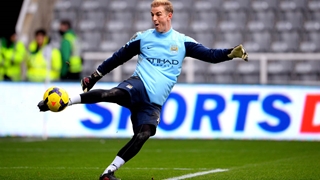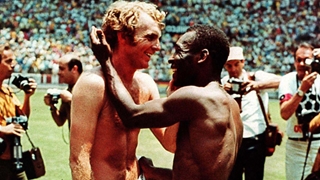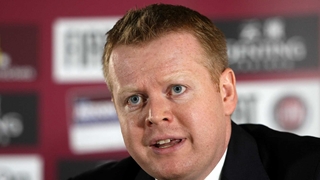
Over 300 goalkeeping enthusiasts are expected at the two-day event which will bring together a collection of the finest names in goalkeeping including England’s 1966 World Cup winning goalkeeper, Gordon Banks, to discuss the future role of the No1.
Attendees will also have access to numerous practical and theory sessions from some the industry’s best goalkeeping coaches.
Tottenham Hotspur’s senior goalkeeper coach, Tony Parks, and Derby County’s, Eric Steele, will provide an insight into the challenges faced by the modern day elite goalkeeper whilst Manchester United’s, Jack Robinson, and Brighton and Hove Albion’s, Mark Mason, will look at the techniques used to nurture the next generation of young keepers.
There will also be exclusive access to the methods used to develop England’s future international goalkeepers with Women’s national coaches Lee Kendall and Leanne Hall, England Youth Goalkeeper Coach, Simon Smith and England futsal coach Tony Elliot all delivering practical sessions.
For England U21 goalkeeper coach and FA head of goalkeeping coach education, Martin Thomas, the event is crucial to helping the development of goalkeeper coaches at every level of the game.
“It is crucial that we continue to bring goalkeeping coaches from every level of the game together to share knowledge, experiences and ideas to develop better goalkeepers at every level of the game.
“The role of the goalkeeper coach is constantly changing and events like this allow us to discuss and predict what the future changes and challenges are and plan for how we are going to lead the way in dealing with them.”
When Liverpool, Tottenham and England goalkeeping legend Ray Clemence was making the first of his 758 league appearances at the start of a glittering playing career, things were very different. Clemence told The FA’s Boot Room magazine that goalkeeping coaches didn’t exist and little was done to improve distribution.
“In the modern game the goalkeeper has the ball more at their feet than they do in their hands. A lot of time has to be spent on the training ground ensuring goalkeeper’s are comfortable with the ball at their feet.
“Distribution is such an important part of the game. I liken it to having a golf bag; when the ball comes back to a goalkeeper they need three or four clubs in their bag.
“They may take a driver and hit it 80 yards down the field; or they may take a mid-iron and ship a ball to half-way; or they may have a wedge in their bag and chip the ball wide to a full-back who may only be 30 yards away, but requires a clip over an opponent.”
Clemence also believes goalkeeping method and techniques have developed in order to deal with the game’s continuing innovations: equipment, player’s shooting and crossing techniques and varied playing styles.
“The ball has changed, it has got lighter, it moves quicker through the air, it moves more and it moves later. That’s why you see goalkeeper’s made fools of; they’re going one way and then all of a sudden the ball changes in direction”.
“We see goalkeepers parrying the ball more than ever in my day. Years back you used to get goalkeepers to try and catch everything in training. But these days you have to coach them to catch the ball but also if they are going to parry it, to parry it into wide and safe areas so that oncoming forwards can’t tap in rebounds”.
Follow @StGeorgesPark for full updates from the FA Licensed Coaches’ Club Goalkeeping conference which will be held on Sunday 13th and Monday 14th April
The conference will also include the first ever FA Goalkeeper Reward and Recognition Awards evening celebrating those who have made an outstanding contribution to the goalkeeping industry








